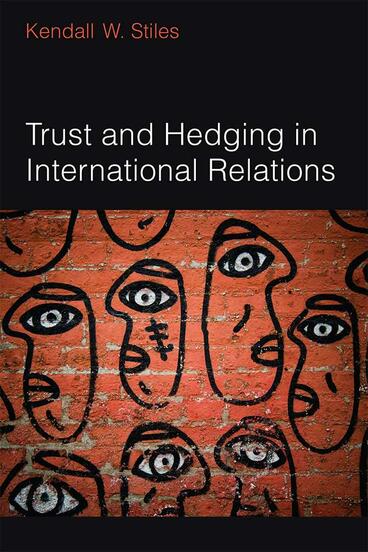Trust and Hedging in International Relations
Revolutionary analysis of the risky role of trust in foreign policy through the assessment of European microstates and their partners
Description
Do states trust each other? What are the political and ethical implications of trust? Drawing from a wide range of disciplines, Trust and Hedging in International Relations adds to the emerging literature on trust in international relations by offering a systematic measure of state-to-state trust. Looking at how relationships between European microstates and their partners have evolved over the past few centuries, Stiles finds that rather than trusting, most microstates are careful to hedge in their relations by agreeing only to arrangements that provide them with opt-out clauses, heavy involvement in joint decision-making, and sunset provisions. In the process, Stiles assesses the role of rationality, social relations, identity politics, and other theories of trust to demonstrate that trust is neither essential for cooperation nor a guarantee of protection and safety. Finally, he explores the ethical implications of a foreign policy founded on trust—in particular whether heads of state have the right to enter into open-ended agreements that put their citizens at risk.
Kendall W. Stiles is Professor of Political Science at Brigham Young University.
Reviews
“In Trust and Hedging in International Relations, Professor Stiles examines the concept of trust, an important but sometimes overlooked subject in international relations. The author begins his analysis by developing a multidimensional definition and operationalization of trust that he relates to international law, international conflict, trade, and realism, liberalism, and constructivism. He follows this with an imaginative research design that explores the trust found in the associations between smaller and larger states, focusing first upon European microstates and then on the relationships between the United States, Russia, and China and several countries that have relied on these dominant members of the international system. Stiles also does a superb job of examining the role such international institutions as the European Union, the Organization for Economic Cooperation and Development, and the United Nations play in building trust and providing smaller countries with a hedge against the adverse effects of an over reliance on more powerful actors. All-in-all, this book is an excellent addition to the study of how smaller countries cope with the need to depend on stronger states and of the moral, legal, and policy implications of such associations.”
—John M. Rothgeb Jr., Miami University
“I know of no other work dealing with trust in international relations that treats the topic with such thoroughness, stringency, and scholarly rigor as this book.”
—Christer Jönsson, Lund University

